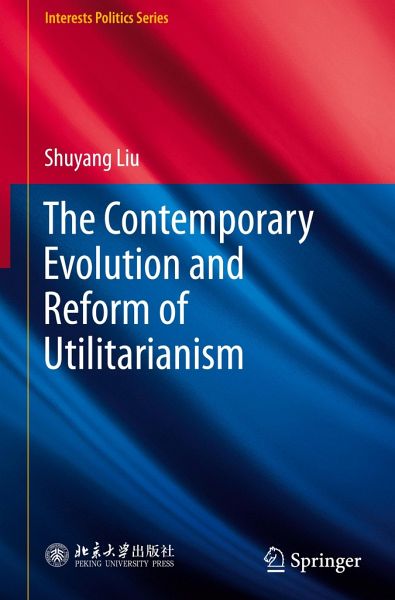
The Contemporary Evolution and Reform of Utilitarianism
Versandkostenfrei!
Versandfertig in 6-10 Tagen
83,99 €
inkl. MwSt.
Weitere Ausgaben:

PAYBACK Punkte
42 °P sammeln!
This book is a monograph on contemporary utilitarianism, focusing on its evolving path and logic. It describes the evolution of utilitarianism from the classical model to the contemporary model and then summarizes the characteristics of contemporary utilitarianism, revealing its advantages and disadvantages. This book points out that the best characteristic of contemporary utilitarianism is to give up traditional view of individualism and take balanced attitude to the relationship between individual and community. The change makes the goal of contemporary utilitarianism from the pursuit of max...
This book is a monograph on contemporary utilitarianism, focusing on its evolving path and logic. It describes the evolution of utilitarianism from the classical model to the contemporary model and then summarizes the characteristics of contemporary utilitarianism, revealing its advantages and disadvantages. This book points out that the best characteristic of contemporary utilitarianism is to give up traditional view of individualism and take balanced attitude to the relationship between individual and community. The change makes the goal of contemporary utilitarianism from the pursuit of maximizing the sum of individual utilities to optimal social utility. Therefore, the contemporary utilitarianism gradually evolves a public philosophy with multiple interests structure, which provides a new way to solve the contradiction between personal interest and public interest.
Utilitarianism is still an important political philosophy in western society, but its existing defects actually make it difficult to have a transformative impact on western institutional structure and system. The target audience of this book are students and researchers majoring in politics and ethics.
Utilitarianism is still an important political philosophy in western society, but its existing defects actually make it difficult to have a transformative impact on western institutional structure and system. The target audience of this book are students and researchers majoring in politics and ethics.














